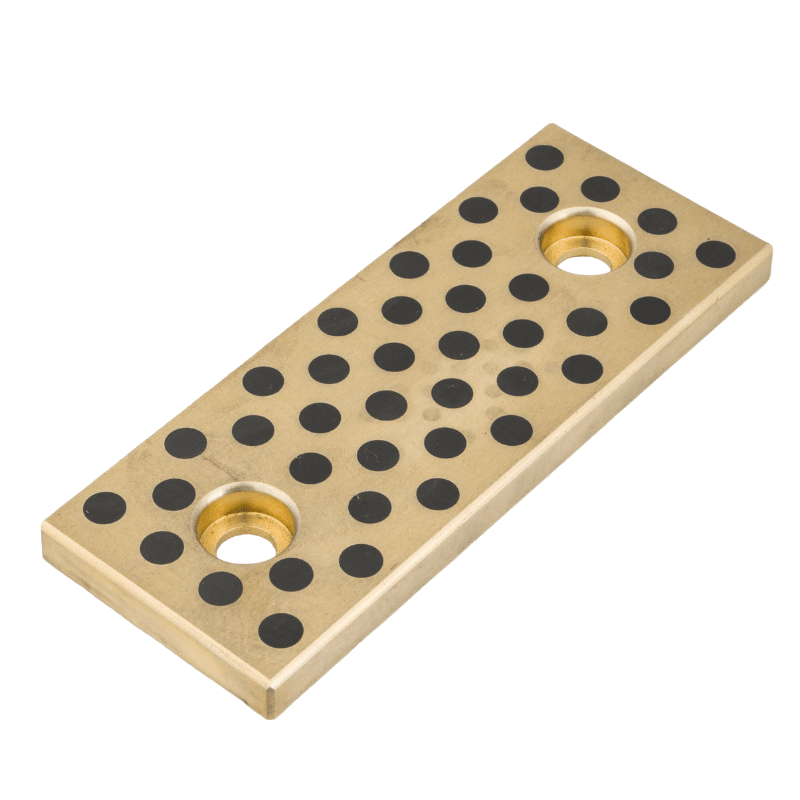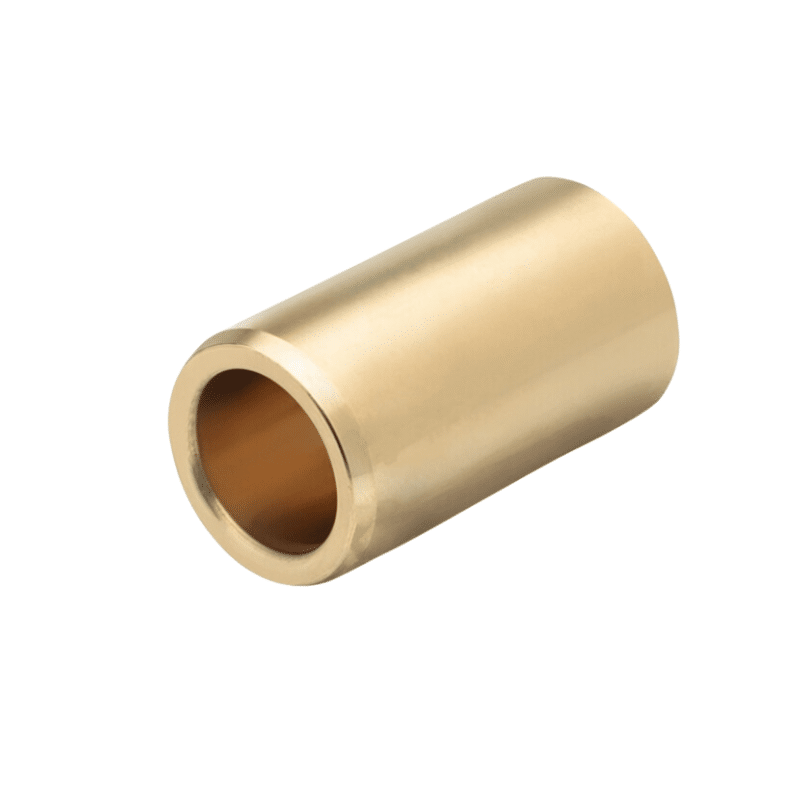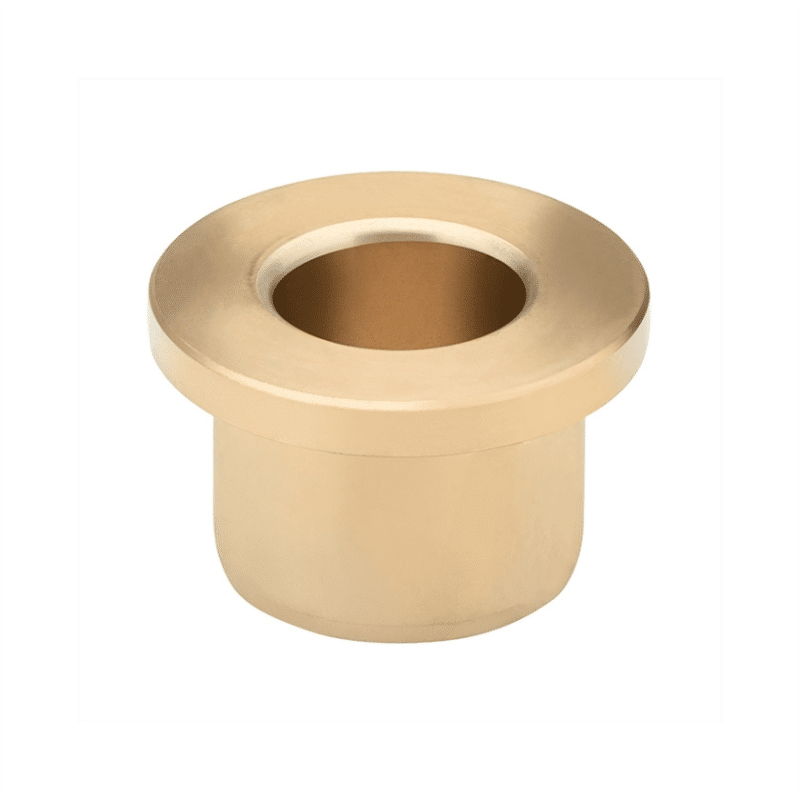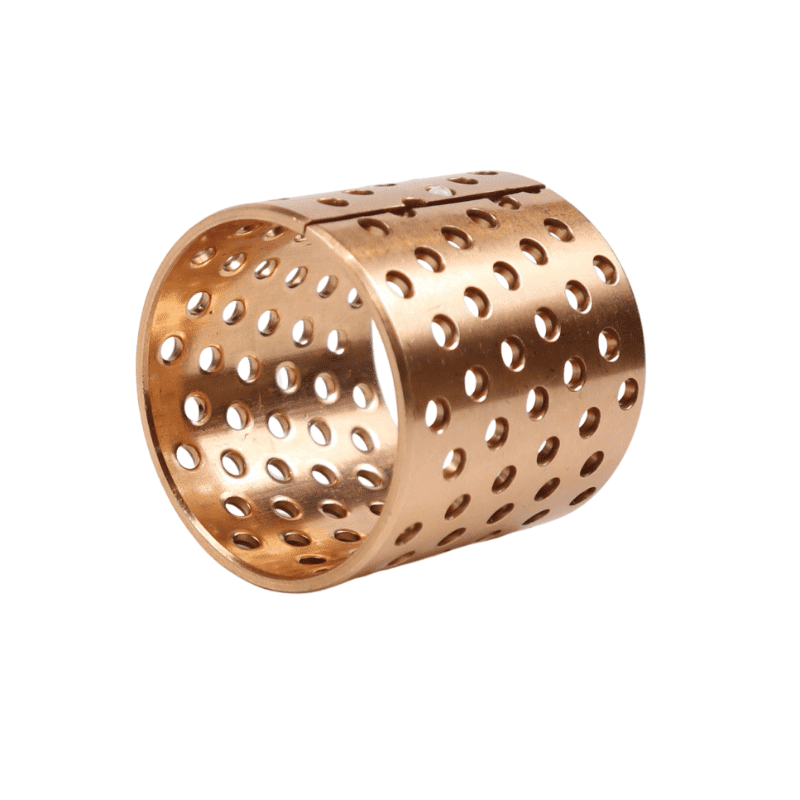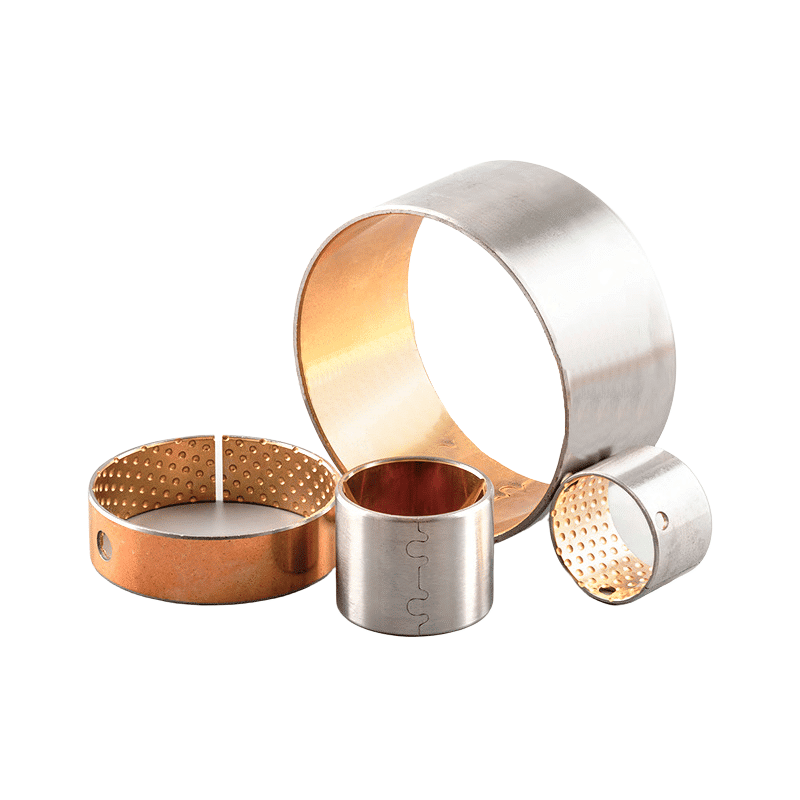CuSn6 Material DIN1791 Bronze Bushes
CuSn6 Material DIN1791 Bronze Bushes
Say goodbye to the hassle of frequent lubrication maintenance. Our self-lubricating technology ensures smooth operation and reduces wear and tear, extending the lifespan of your equipment. Experience uninterrupted productivity and cost savings as you bid farewell to the need for messy lubricants and time-consuming upkeep.
Manufacturing on Demand, alternative solutions
CuSn6 Material DIN1791 Bronze Bushes
CuSn6 material, as per DIN 1791, is a solid solution strengthened copper alloy (bronze) with 6% tin. This alloy is known for its high strength, good springiness, and adequate conductivity, making it well-suited for cold forming operations. It is wear-resistant, has very good corrosion resistance, and can be readily soldered.
UNSC51900•ENCW452K•JISC5191
CuSn6 DIN1791 bushes are crafted from a bronze alloy known as CuSn6, adhering to the DIN1791 standard. Here’s an overview:
Alloy Composition: The designation CuSn6 denotes an alloy primarily made of copper (Cu) and tin (Sn), with the “6” representing the tin content percentage. This alloy typically contains around 6% tin.
DIN1791 Compliance: The DIN1791 is a German standard that outlines the required dimensions, tolerances, and other specifics for bushes. Adherence to this standard guarantees that the bushes are consistent and compatible across various uses.
Usage: These bushes are utilized in numerous sectors, such as automotive, machinery, and engineering, acting as bearings or bushings. They are chosen for their superior wear resistance, minimal friction, and robust mechanical attributes.
Market Availability: Industries can source CuSn6 DIN1791 bushes from vendors and manufacturers that specialize in metallic components, ensuring easy access to these essential parts.
These components are prized for their longevity, dependability, and versatility in a wide array of mechanical settings.
CuSn6 Material DIN1791 Bronze Bushes, Material: CuSn6 DIN1791, tolerance H6, CuSn8 & CuSn6.5 Bronze Bearings Material
Supplier and Manufacturer of Bronze Rolled Bushes: CuSn6 Wrapped Bushing, Bronze Bearing Bushing, and Oilless Bush – Your Source for Bronze Bush Components.
CuSn6 is a bronze alloy reinforced through solid solution strengthening, containing 6% tin. This alloy exhibits high strength and favorable spring characteristics, maintaining sufficient conductivity, making it ideal for cold forming processes. It is characterized by its wear resistance, excellent corrosion resistance, and ease of soldering.
It is commonly used in the production of stamped parts, connectors, spring contacts, and springs, as well as in metal hoses. The alloy finds applications across various industries, including the paper industry, shipbuilding, apparatus construction, and both electrical and mechanical engineering fields.
The CuSn6 material, as referenced in DIN1791, is a type of bronze alloy used for manufacturing bushes. This material has specific properties that make it suitable for such applications, including good wear resistance and strength. The designation “CuSn6” refers to the copper-tin alloy with approximately 6% tin. The “DIN1791” likely refers to a specific standard or specification related to this material or product, although the exact details of this standard are not provided in the search results.
The term “tolerance H6” refers to the dimensional tolerance of the bushes, which is a critical factor in their fit and function in mechanical assemblies. The H6 tolerance is a standard metric tolerance that specifies the size and allowable variation for the bushes, ensuring they fit appropriately with the corresponding shafts or housing components. While the exact dimensions for an H6 tolerance can vary based on the nominal size, it generally indicates a tight tolerance level suitable for applications requiring precise fit!
The DIN 1791 standard is presumed to define the specifications for bronze materials like CuSn6, but the exact details of this standard aren’t available in the provided information. The H6 tolerance mentioned is based on the ISO 286 International Tolerance Grade, specifying the permissible size variation for shaft dimensions. For instance, a 1.00” hole with an H6 tolerance would have a permissible size deviation ranging from +0.0000 to -0.0005 inches.
Lubricating holes in bronze bushes serve the crucial function of distributing lubricants, such as grease or oil, to minimize friction and wear between the bush and its counterpart. Grease is particularly favored for solid bronze bushes because of its viscosity and ability to hold contaminants away from the bush surface while providing sustained lubrication.
Wrapped split bronze bushes are engineered to support both radial and axial loads and can include customized features like grease reservoirs for extended lubrication or graphite inserts for self-lubrication. Similarly, self-lubricating bronze bearings might incorporate oil impregnation or graphite plugs, ensuring continuous lubrication over their lifespan.
In essence, CuSn6 DIN 1791 wrapped split bronze bushes with an H6 tolerance and lubrication holes offer robust, corrosion-resistant bearing solutions. These bushes are adaptable to various load conditions and can include specialized lubrication options to boost their performance and durability.
The DIN 1791 standard, established in 1973, pertains to cold-rolled strips and strips cut to length from copper and wrought copper alloys. This standard specifies the dimensions for strips ranging from 1.0 to 4 mm in thickness and up to 1000 mm in width for manufacturing lengths, as well as for strip cuts from 0.1 to 4 mm thick and up to 500 mm wide in lengths over 500 mm. It’s important to note that DIN 1791 has been superseded by newer standards, specifically DIN EN 13599 and DIN EN 1652, which may contain updated specifications or requirements!
Technical Specifications: (CuSn8)
Maximum Dynamic Load: 100N/mm² Maximum Linear Velocity (with Grease): 2 m/s Maximum PV Value (with Grease): 2.8 N/mm²·m/s Tensile Strength: 460 N/mm² Yield Strength: 280 N/mm² Hardness Range: 90-150 HB Required Hardness for Matching Shaft: ≥50 HRC Surface Roughness for Matching Shaft: Ra = 0.4 to 1.0 Operational Temperature Range: -40 to +150°C Friction Coefficient Range: 0.06 to 0.15 Coefficient of Thermal Expansion: 18.5 x 10^(-6) K^(-1)
Your expert in self-lubricating Bearing
and Bronze alloys – serving globally
Brand replacement products and functionally equivalent parts, alternative solutions
Manufactures flange bronze bearings, service & maintenance companies to meet the exacting specifications required in a wide range of industrial applications.
Machined bronze bushing that meet the exacting requirements & specifications supplied by our clients. Spherical bearings, spindles, semi-spheres and supports that we have manufactured.
You will find to follow a selection of self lubricating bronze bearing material CuSn7Zn4Pb7, CuSn12, CuAl10Fe5Ni5,
CuZn25Al5Mn4Fe3
Alternative solution,We offer an outsourced machining service for bronze bushes, manufacturing precise parts to the designs supplied to us by our clients.
Selection of other composite bushing material of self lubricating bearing that we have manufactured.
Wrapped Bronze Sleeve Bearing, Are you interested in our products?
Manufacturer of bimetal and steel bronze bushing parts according to client’s drawing.



